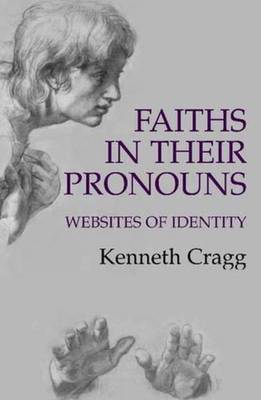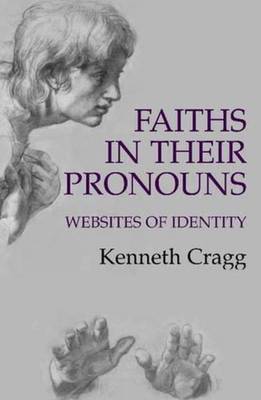
- Afhalen na 1 uur in een winkel met voorraad
- Gratis thuislevering in België vanaf € 30
- Ruim aanbod met 7 miljoen producten
- Afhalen na 1 uur in een winkel met voorraad
- Gratis thuislevering in België vanaf € 30
- Ruim aanbod met 7 miljoen producten
Zoeken
€ 132,95
+ 265 punten
Uitvoering
Omschrijving
The pronoun is the very mother tongue of thought. Family and race, nation and society, the clamant us and ours of collectives, resolve into I and singular You, the transacting pronouns of all human discourse. Pro-nouns are well styled, for they function on behalf of rights, claims, dignities and demands. Acquisitive and discursive, they transact the business of existence. It follows that pronouns are the essence of religion: their usages dictate the liability of religious faith. Their handling is a sure clue to the idiom of creed or ritual. If the web is society, then the speaking faiths of pronouns I, we, us, ours, they, thou, you, them come into their own in our keyboard encounters. Extending the metaphor, the net allows pronouns to intercept meaning, and to substitute for lack of clarity in argument and understanding. Insofar as religions as grammars provides a proper analogy, Faiths in Their Pronouns aims to explore their pronounal internet in hope of wiser courtesy and surer mutual discovery, a hope that is well captured in the face and hands of Raphaels etching.
Specificaties
Betrokkenen
- Auteur(s):
- Uitgeverij:
Inhoud
- Aantal bladzijden:
- 245
- Taal:
- Engels
Eigenschappen
- Productcode (EAN):
- 9781903900154
- Verschijningsdatum:
- 1/09/2002
- Uitvoering:
- Hardcover
- Formaat:
- Genaaid
- Afmetingen:
- 157 mm x 165 mm
- Gewicht:
- 498 g

Alleen bij Standaard Boekhandel
+ 265 punten op je klantenkaart van Standaard Boekhandel
Beoordelingen
We publiceren alleen reviews die voldoen aan de voorwaarden voor reviews. Bekijk onze voorwaarden voor reviews.











